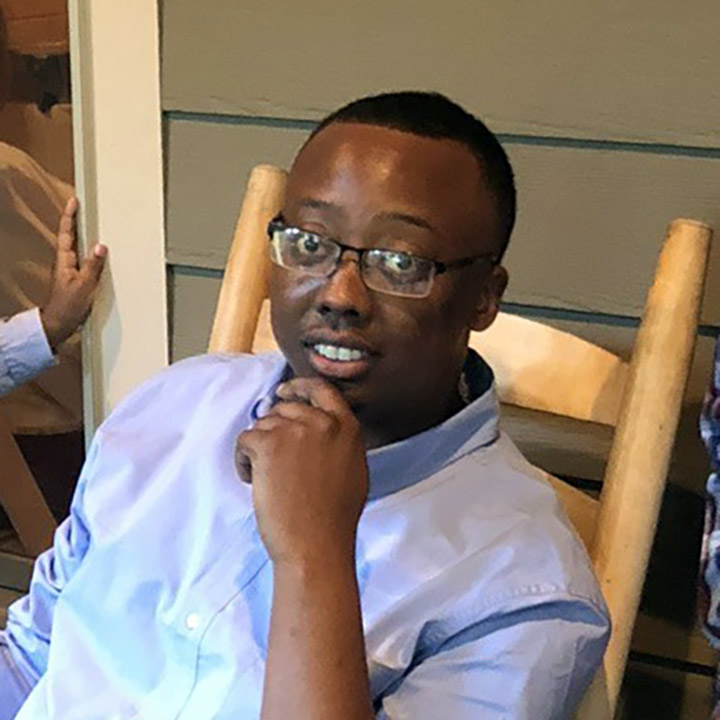Michael
Sickle Cell Disease

Michael
Sickle Cell Disease
Michael, now age 38, was born with sickle cell disease, a blood disorder which causes the body to produce abnormally shaped red blood cells. Sickle cell disease affects approximately 1 out of every 365 Black or African-Americans – causing extremely painful crises that last days and sometimes weeks.
Historically, there have been few treatment options and the pain often disrupts everyday living – making it difficult to go to school, play sports and hold a full-time job.
Luckily, Michael’s mother is a nurse and was able to relieve his pain crises through IV treatments and helped him manage appropriate time limits for physical exertion.
“I loved sports. I opted to be the water boy for my high school football team so that I got to travel with the team although I couldn’t play,” said Michael. “I was first told that I would die by my 18th birthday and if I happened to live past that, I shouldn’t have children because I couldn’t be there for them as they grew up. This was simply not the life I saw for myself.”
Michael struggled with pain crises – oftentimes waiting in the local emergency room for 8-12 hours in hopes of being treated. “Sickle cell disease is especially tricky because you outwardly look fine but, on the inside, your red blood cells wreak havoc on your body. I’ve had fellow sickle cell friends die from a heart attack in the ER while waiting to be seen. I knew there had to be a better way.”
Michael beat the odds and went on to have three beautiful, healthy sons – none of whom have sickle cell disease. He chose to stay close to his mom and his hometown physician in rural Mississippi who helped him advocate for appropriate healthcare interventions. He went to community college and worked three jobs to provide for his family but then one day, everything changed.
“I went to my mom’s medical office on a Saturday to help her take care of a few things. I decided to put out the new health magazines in the waiting room. As I arranged them, there was Victoria Gray on the cover of NPR sharing how she was free from any sickle cell disease symptoms through gene editing. The clinical trial was in Nashville at Sarah Cannon Research Institute (SCRI). I couldn’t believe it- my mom and I had been praying for something just like this!”
Michael immediately decided to search for Victoria on Facebook. Since both Michael and Victoria are from Mississippi, she popped up right away. “Victoria was gracious in sharing with me guidance around the clinical trial option. We had so much in common – we are around the same age; we both have three children and we are both from rural Mississippi. If she could change her life, so could I.”
Michael began the clinical trial under the care of Haydar Frangoul, MD, MS, Medical Director of Pediatric Hematology/Oncology, SCRI and TriStar Centennial Children’s Hospital. “When I found out I was accepted to the trial, my mom and I cried for 30 minutes. I traveled to Nashville every month and had fantastic results. I loved the people at SCRI and the culture of Nashville.”
Now, Michael hasn’t had a pain crisis in two years.
“Now, without these pain crises, I can dream dreams that I couldn’t dream before. Even my mother was able to retire once she knew that I had no symptoms of disease. I am so thankful to Dr. Frangoul and the whole care team. They each went above and beyond, and I’ll be forever grateful.”